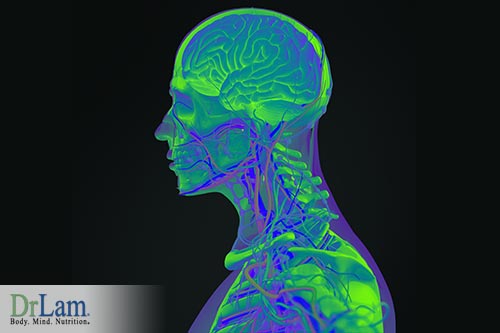 People go through different things throughout their lives that affect who they become and how they handle situations. Childhood stress can affect how the adult body handles stress on a physical level.
People go through different things throughout their lives that affect who they become and how they handle situations. Childhood stress can affect how the adult body handles stress on a physical level.
It has proven extremely difficult to find solutions to a variety of the mental health problems people face. Because of this, a lot of research is being conducted to examine possible links between how childhood stress and experiences could develop into physical response patterns over time. There are a few different ways these links can show themselves.
The Hypothalamus-Pituitary-Adrenal (HPA) hormonal axis is the main regulatory system that the body uses to manage stress. This axis influences feedback between the hypothalamus, pituitary gland, and adrenal glands to complete a circuit in the stress response process. For the HPA axis to work properly, the body must be able to produce adequate levels of hormones and neurotransmitters on a consistent basis.
There is a process called neural embedding which can influence how the HPA axis functions while a person is developing. The process can start with childhood stress, and it can also occur if the mother has excess levels of stress hormones circulating through her body during pregnancy. This happens partly because, when the ventromedial prefrontal cortex is developing, it is sensitive to changes in HPA axis activity. This cortex is what we use to derive adaptive solutions to challenges that we face during our lives. It is used on a daily basis to overcome difficulties.
One of the biggest changes that occurs in the function of the HPA axis during excess childhood stress is that there is a dysregulation of cortisol output over time. Cortisol is the main hormone through which the body activates its physical response to stress. It affects energy levels, mood, immune system function, nutrient uptake in the gut, and much more. Cortisol is released at different rates throughout the day to ensure healthy body function.
When cortisol is dysregulated, it is often insufficient during early morning hours when you need it most, while levels spike when you don’t need it. This imbalance leads to several issues such as anxiety and irritability. That is only some of the emotional effects that it has on the body. Cortisol imbalance also impacts your physical health which can lead to problems with the heart, GI function, and fatigue.
More concerning than the imbalance of cortisol output is the effect that childhood stress has on proper cognitive function. Research shows that there is evidence of atrophy in the prefrontal cortex of the brain when there are problems with the HPA axis. This is a worrisome development.
Please note that many different aspects of stress affect how your body functions, and you should not immediately consider a single cause to be the root of your issues. It is also prudent to seek out the advice of a trained professional if you believe you are experiencing mental health issues, as they can become serious. For those with more mild problems, don’t discount the developmental effect of early childhood stress on healthy cognitive function. Stress can even start in utero. A stressed out mother during pregnancy gives rise to stressed out babies.
 A study in Wisconsin examined the relationship between the levels of cortisol in pregnant women and in their children later on. There were interesting findings. There was a direct correlation between elevated cortisol during pregnancy and the resting levels of cortisol in children. This would imply that stress should be limited as much as possible during pregnancy to avoid long-term consequences for a child’s development.
A study in Wisconsin examined the relationship between the levels of cortisol in pregnant women and in their children later on. There were interesting findings. There was a direct correlation between elevated cortisol during pregnancy and the resting levels of cortisol in children. This would imply that stress should be limited as much as possible during pregnancy to avoid long-term consequences for a child’s development.
Another consideration is that the correlation between elevated cortisol levels during infancy and later adolescent cortisol release is higher in girls than boys. This would suggest that it is important to maintain low stress levels regardless of the baby’s sex, but it is more important for girls.
The development of the ability to overcome adversity on a cognitive level also has its roots in early childhood. Reducing chronic adversity in childhood is an important aspect of planning for later success. However, the study found no link between anxiety and mood concerns later in life and cortisol levels in adolescence, implying stress during the teen years may not have as big an impact.
Reducing childhood stress for your little ones starts with pregnancy. Stress is nearly unavoidable, and you don’t need to feel guilty about going through normal stress during pregnancy. The key is to be aware of chronic stress and continually elevated cortisol levels, for which there are methods of stress reduction. Hormone production is very elevated during pregnancy, and because of this, there is an inevitable change in reactions to stressful situations for most women.
Research also shows that there may be a link between infant stress levels and HPA axis dysregulation, also more prevalent in females. This is because, for girls, there is a faster growth in certain parts of the brain that take longer for males to develop. This fast development suggests that patterns of cognitive function take hold earlier and can result in lasting vulnerability for females.
 Continual stress, whether the result of what we’ve experienced in childhood or what we’re currently going through, can lead to difficulties with proper physical function. The HPA axis places a large portion of the burden of stress response onto the adrenal glands. These glands produce the cortisol necessary to respond to stressful situations. When the adrenal glands are required to produce more cortisol than they are able to, they reach a state of fatigue and exhaustion.
Continual stress, whether the result of what we’ve experienced in childhood or what we’re currently going through, can lead to difficulties with proper physical function. The HPA axis places a large portion of the burden of stress response onto the adrenal glands. These glands produce the cortisol necessary to respond to stressful situations. When the adrenal glands are required to produce more cortisol than they are able to, they reach a state of fatigue and exhaustion.
If you have abnormally high cortisol levels to start with because of early childhood stress and HPA axis dysfunction, you are more likely to suffer from what’s known as Adrenal Fatigue Syndrome (AFS). Someone experiencing AFS faces a multitude of issues. These problems are not impossible to overcome but can be debilitating over time.
Anxiety, fatigue, lethargy, and poor physical health can result from AFS. The body uses cortisol to maintain energy levels throughout the day, so if you can’t produce enough because of chronic stress, you become too exhausted to perform daily tasks. This eventually becomes a health risk because the body isn’t absorbing proper nutrients and can develop further imbalances.
AFS can be confused with other conditions, so it’s important to consult your doctor if you are suffering from anything discussed above. The body is a complex organism, and it would be unwise to assume there is a single source of the issues that you are experiencing. Taking a balanced approach towards your issues is the best way to determine what needs to be done.
Although childhood stress has negative effects throughout adult life, there are things you can do to limit the stress that you or your children are experiencing now. Whether you’re suffering from current or childhood stress induced issues, it helps to consider the entire system through which your body handles stress so that you can discover different possible solutions.
The main system that handles stress is known as the NeuroEndoMetabolic (NEM) Stress Response. This is a larger system that encompasses the HPA axis as well as other aspects of the body. Many people wonder why they tend to gain weight when they are under intense pressures at work or home, and the blame can often be put on the NEM Stress Response. This is due to it’s influence on parts of the metabolism, including the thyroid gland.
There are many ways the effects of AFS and the NEM tie into pathways to recovery.
 For early childhood stress especially, a good diet goes a long way toward helping cope with your stress response. If your body doesn’t have enough nutrients to produce the necessary hormones for a healthy stress response, you won’t be able to recover properly, and your body will be drained. The simple solution is to implement slow changes to diet, replacing things like artificial sugars with more healthy alternatives such as fruit and honey, as they provide added benefits besides being sweet.
For early childhood stress especially, a good diet goes a long way toward helping cope with your stress response. If your body doesn’t have enough nutrients to produce the necessary hormones for a healthy stress response, you won’t be able to recover properly, and your body will be drained. The simple solution is to implement slow changes to diet, replacing things like artificial sugars with more healthy alternatives such as fruit and honey, as they provide added benefits besides being sweet.
Good sleep schedules are also something that can aid massively in stress reduction. It is difficult to recover from chronic stress if you are not getting the rest that you need to rejuvenate your body. This goes the same for children. A child that isn’t getting adequate sleep is going to be much more likely to experience childhood stress above a healthy threshold.
When your NEM Stress Response has been compromised and left you susceptible to AFS and other complications, the first step needs to be improving your own health. Take the time to consider what you can do to alter your circumstances and reduce chronic stress by exercising, getting out in the sun for vitamin D, or just meditating for a few minutes every day. These small changes will work wonders to help your overall stress level.
Once you have implemented a few practices limit your stress, your HPA axis will have fewer demands placed on it, and the adrenal glands will begin to recover their normal capacity. This type of change doesn’t happen overnight, however. In many cases, this requires a full mind-body approach to bring everything back into balance.
If you have experienced childhood stress that has altered the way your prefrontal cortex activates the HPA axis, you may have to work harder than others to restore your body’s balance. The neural embedding that took place when you were young will likely have an impact on your stress response process throughout your life. However, that doesn’t mean that things are hopeless, as there is always something you can do to help the way you cope with stress.
With your HPA axis under control, the effects are far-reaching. Your need for cortisol will be reduced, which will, in turn, lower your risks for all of the health problems that can arise from AFS. On the positive side, you can expect increased energy levels, more restful sleep, and better nutrient absorption. Once you feel better from a more balanced approach to your stress, then you can begin increasing exercise and other beneficial activities.
Always remember that in cases of prolonged AFS, it can be dangerous to engage in even light exercise because of compromised hormone levels. If you have any concerns as to whether you are healthy enough to engage in any of the options suggested in this article, please contact your healthcare provider. The last thing you want to do is damage an already fragile system by engaging in what you think will be beneficial activities, only to find out later that it was a poorly timed solution.
 When it comes to children, it’s best to set up a situation where they don’t have to experience this. Taking preemptive steps to lower your own stress will also help lower theirs, providing that there isn’t an underlying genetic issue. There’s nothing better than giving your child a clean slate with which to experience life. If stress levels are already high, then make some changes and get things back into the realm of positivity. It’s never too late to address a situation.
When it comes to children, it’s best to set up a situation where they don’t have to experience this. Taking preemptive steps to lower your own stress will also help lower theirs, providing that there isn’t an underlying genetic issue. There’s nothing better than giving your child a clean slate with which to experience life. If stress levels are already high, then make some changes and get things back into the realm of positivity. It’s never too late to address a situation.
If you are pregnant, it is a good idea to consider the possibility that the stress you are experiencing will affect your child. It’s never too late to take good care of yourself to avoid the later effects of a stressful pregnancy, and you may find that you are much happier with pregnancy once stress is reduced. Feel empowered to make things the way you want them to be.
Don’t forget that mental health is a complex subject to broach in any situation, so it may not be as easy as it sounds to correct long-term dysfunction. If you think there is a possibility that what you are going through has to do with a biological problem, contact a mental health professional. The longer you wait to begin fixing your mental health issues, the longer it will take to remedy them. There is always hope for progress.
It may very well be the case that AFS is triggered by HPA axis dysfunction that has been brought on by childhood stress, but that’s not the only possibility. There are many different causes of AFS that range from lack of sleep to anxiety and worry.
